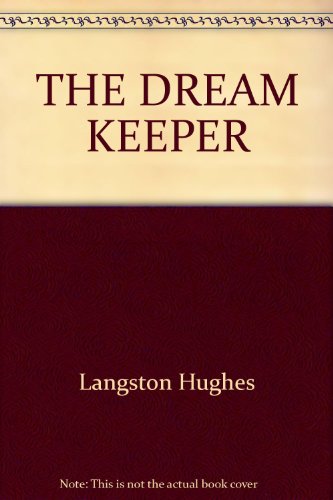-
Famous American Negroes
Langston Hughes
Paperback (Dodd, Mead, March 15, 1954)Life stories that span two hundred years of American history from Colonial times to the present of people who have contributed in every important field of human endeavor.
-
Not Without Laughter
Langston Hughes
Hardcover (Amereon Ltd, July 1, 1976)None
-
The Ways of White Folks
Langston Hughes
Paperback (Vintage Books, Dec. 12, 1971)In these acrid and poignant stories, Hughes depicted black people colliding--sometimes humorously, more often tragically--with whites in the 1920s and '30s.
-
The Ways of White Folks
Langston Hughes
Hardcover (Alfred A Knopf, March 15, 1934)None
-
The First Book of Jazz
Langston Hughes
Library Binding (Franklin Watts Inc., March 15, 1955)None
-
The Dream Keeper
Langston Hughes
Library Binding (Knopf Books for Young Readers, March 12, 1962)A collection of fifty-nine poems, selected by the author for young readers, including lyrical poems, songs, and blues, many exploring the black experience.
-
Dream Boogie
Langston Hughes
Paperback (CreateSpace Independent Publishing Platform, Nov. 17, 2017)Langston Hughes was an American poet, social activist, novelist, playwright, and a columnist. Hughes was one of the earliest innovators of the then-new literary art form called jazz poetry. Hughes is best known as a leader of the Harlem Renaissance in New York City. He famously wrote about the period, which was later paraphrased as "when Harlem was in vogue". S
S
-
Selected Poems: Langston Hughes
Langston Hughes
Paperback (Vintage Books, April 12, 1974)The appearance in 1926 of Langston Hughes's first volume of poems, The Weary Blues, announced the arrival on the American literary scene not only of a new voice and tone, but also of a new sort of voice. Close to the rhythms of Negro speech and song, these apparently artless verses -- which, of course, in reality proclaim a poet of sophistication and keen sensibility -- brought to many readers throughout the English-speaking world a new enjoyment of the multifarious voices of Harlem and the other places where Negroes live in large numbers. Since The Weary Blues, Langston Hughes -- to mention only his verse -- has published Fine Clothes to the Jew (1927), The Dream Keeper (1932), Shakespeare in Harlem (1942), Fields of Wonder (1947), One Way Ticket (1949), Montage of a Dream Deferred (1951), Ask Your Mama (1961), and The Panther and the Lash (1967).Selected Poems of Langston Hughes represents Langston Hughes's own decisions as to which of his poems he most wanted to preserve and reprint. It contains not only selections from his published books (including private publication), but also poems that either had never been published before or had appeared only in periodicals.Here are reflected the rhythms of jazz, the blues, and spirituals. Arna Bontemps has called Langston Hughes the "original jazz poet," and it is worth noting that Hughes in his last years often read his poetry to jazz accompaniment. But there is more in these poems than jazz, its rhythms and its significance. Here, too, are the travail, the joys and accomplishments, the wide-eyed wonder and bitter realizations of a transplanted race. Here, most important of all, are the affirmations and speech of a true poet. Primarily a lyricist, Langston Hughes learned how to speak with intensity of the things that mattered to him, the human factors that he understood and appreciated, whether in praise, in condemnation, or in sheer song.
-
Don't you turn back;: Poems
Langston Hughes
Hardcover (Knopf, March 15, 1969)None
-
Thank you, m'am
Langston Hughes
Perfect Paperback (SRA/McGraw-Hill, Jan. 1, 1997)None
-
The Langston Hughes Reader
Langston Hughes
Unknown Binding (George Braziller, March 15, 1958)None
-
Simple speaks his mind
Langston Hughes
Paperback (Simon and Schuster, Jan. 1, 1950)short pieces of race relations & discrimination in America published between 1943-1950 in the Chicago Defender